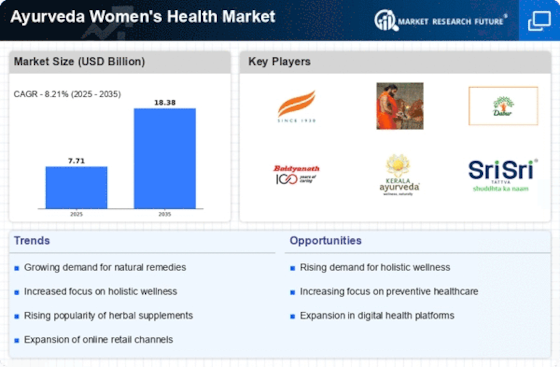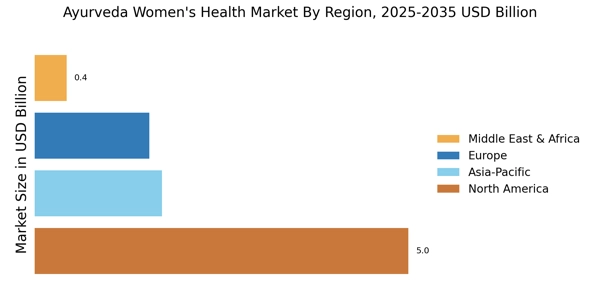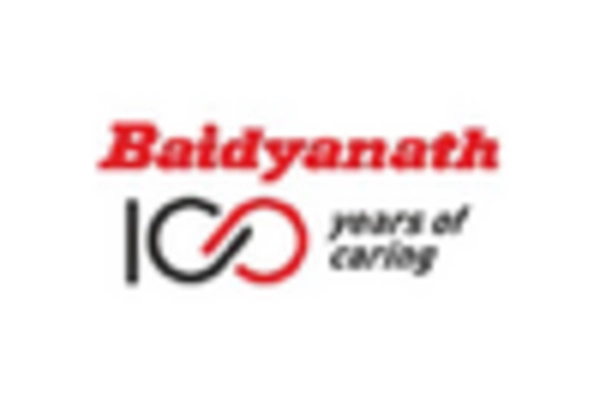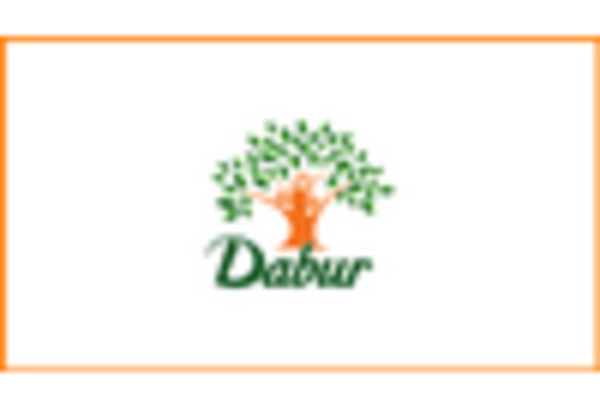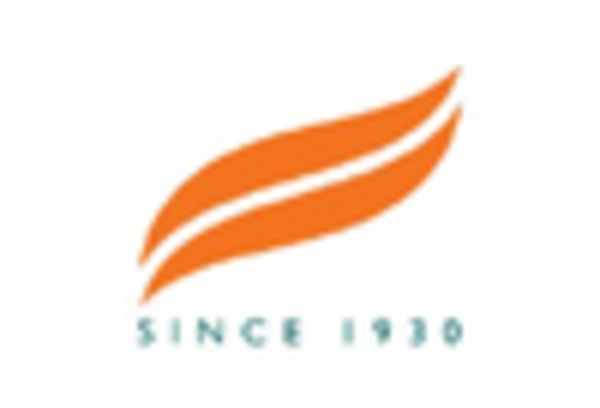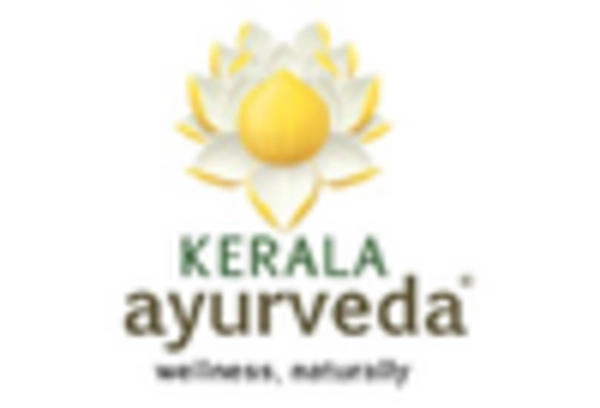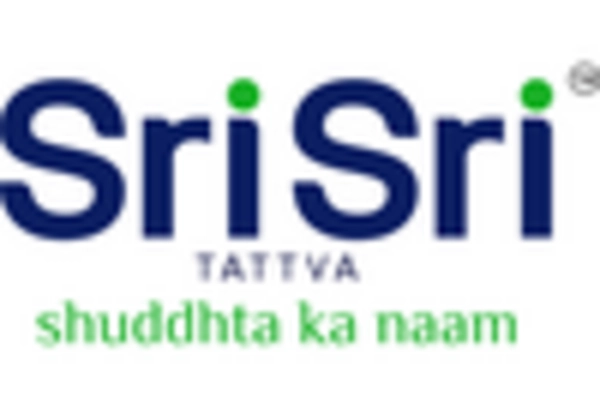Expansion of E-commerce Platforms
The Ayurveda Womens Health Market is experiencing a transformative shift due to the expansion of e-commerce platforms. The rise of online shopping has made Ayurvedic products more accessible to a wider audience, particularly women seeking convenient health solutions. E-commerce allows for a diverse range of Ayurvedic offerings to be showcased, catering to various health needs. Data suggests that online sales of health and wellness products are growing rapidly, indicating a shift in consumer purchasing behavior. This trend is likely to continue, as more women turn to online platforms for their health needs, thereby driving growth in the Ayurveda market.
Rising Awareness of Holistic Health
The Ayurveda Womens Health Market is experiencing a notable surge in consumer awareness regarding holistic health practices. This trend is largely driven by a growing understanding of the interconnectedness of physical, mental, and emotional well-being. As women increasingly seek natural and holistic approaches to health, the demand for Ayurvedic products tailored to their specific needs is likely to rise. Reports indicate that the market for herbal supplements, which includes Ayurvedic formulations, is projected to reach substantial figures in the coming years. This heightened awareness encourages women to explore Ayurveda as a viable alternative to conventional medicine, thereby expanding the market's reach and potential.
Shift Towards Preventive Healthcare
The Ayurveda Womens Health Market is witnessing a significant shift towards preventive healthcare. This paradigm shift is characterized by a proactive approach to health management, where women are increasingly prioritizing prevention over treatment. Ayurveda, with its emphasis on balance and natural remedies, aligns well with this trend. Data suggests that preventive healthcare spending is on the rise, with consumers willing to invest in products that promote long-term health benefits. As women become more informed about the advantages of preventive measures, the demand for Ayurvedic solutions that support overall wellness is expected to grow, further propelling the market.
Cultural Rejuvenation of Traditional Practices
The Ayurveda Womens Health Market is benefiting from a cultural rejuvenation of traditional health practices. As societies become more interested in their cultural heritage, there is a renewed appreciation for ancient systems of medicine like Ayurveda. This resurgence is particularly evident among women who are seeking authentic and time-tested remedies for their health concerns. The market is likely to see an increase in the adoption of Ayurvedic practices as part of daily routines. Furthermore, the integration of Ayurveda into modern wellness trends may enhance its appeal, potentially leading to a broader acceptance and utilization of Ayurvedic products.
Growing Interest in Sustainable and Ethical Products
The Ayurveda Womens Health Market is increasingly influenced by a growing interest in sustainable and ethical products. Consumers are becoming more discerning about the origins and production methods of the products they purchase. Ayurvedic products, often derived from natural and sustainably sourced ingredients, resonate well with this consumer sentiment. Market data indicates that the demand for eco-friendly and ethically produced health products is on the rise. As women prioritize sustainability in their purchasing decisions, the Ayurveda sector is likely to benefit from this trend, positioning itself as a leader in the ethical health market.


